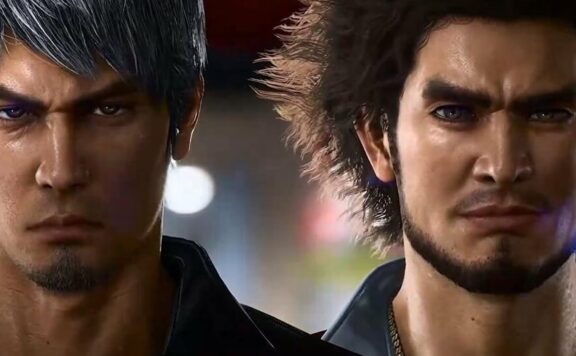As I vanquish yet another goon with my oversized adult sex toy, I couldn’t help but think, “The more things change, the more they stay the same.” That is certainly the case for Yakuza: Like A Dragon. Marking a major shift in the series, Like A Dragon introduces both a new protagonist in the form of Ichiban Kasuga and a turn-based battle system. It’s a bold move to change a series so dramatically, so far into its life, but if anyone can pull it off, it’s going to be Ryu Ga Gotoku Studio.
Yakuza: Like A Dragon starts with our new protagonist, Ichiban (which literally means “the best”) taking the fall for a crime he didn’t commit and ending up serving 18 years in prison. Once Ichiban returns to the outside world, it’s a vastly different place and before long he finds himself embroiled in a turf war between warring gangs. The usual Yakuza stuff.
The biggest change in Like A Dragon is undoubtedly the shift from an action heavy brawler to turn-based combat. Fortunately, this turn-based combat system is pretty solid. Characters have a number of abilities available based on their currently equipped job. Each job fits a different purpose in battle, whether it be outright attack, team buffs or healing.
Fights play out like a mix between Persona 5 and the Mario RPG titles. Controlling each character, you can attack, block, access items or use special moves to attack your enemies. The series’ action elements make their way into the fights, as special moves require button prompts for extra damage, while a well-timed block will reduce incoming damage. It’s a great way to keep players feeling like they’re at the centre of the actions, rather than taking a back seat and ordering from above.

The way the turn-based combat is explained may well be one of my favourite moments in gaming this year. Ichiban’s sidekick just plainly asks why he lets enemies hit him, and Ichiban responds saying that he views fights like his favourite video game, Dragon Quest. It’s a silly way to explain the change in combat system, but it is one that fits perfectly in with the Yakuza aesthetic.
Even so, for longtime fans of the series, Like a Dragon’s gameplay is a vast departure from the previous titles. The manic, visceral combat which made Kazuma Kiyru feel like an unstoppable demi-god is gone, and it leads to a more measured and slower pace, and you have to commit a lot more of time to the numerous street fights. I’ve always personally enjoyed turn-based JRPGs, so I felt right at home, but I think the transition might be too jarring for those who aren’t fans of the genre.
Outside of combat, things pretty much stay the same with the usual collection of shops, activities and sub-stories scattered throughout the city. Like a Dragon starts in the series staple of Kamurocho before the narrative shifts to Yokohama, an area roughly three-times bigger.
This size doesn’t go unnoticed. Yokohama just feels much bigger, with numerous environments throughout it, but when a lot of areas feature little more than collectibles and treasures, that also feels unnecessary. I found myself missing the dense familiarity of Kamurocho and the fact that every inch of its busy streets has purpose. It’s not that Yokohama doesn’t have its own character, though. The diversity of its streets is fascinating, with the likes of Chinatown and Koreatown feeling especially colourful against the grey backdrop of the city.

English dubs make their way into Like a Dragon, a feature which was first included in the spin-off title Judgement. The English VO is especially welcome during the many substories, bringing an extra level of depth and character to them, something the localisation team should be commended for.
Yakuza games have always been quite infamous for their depiction of women, and unfortunately, Like a Dragon isn’t great on this front either. While the writers have always written great female characters, the decision to have female party member Saeko Mukouda attack enemies with a handbag is, well… it’s pretty stereotypical. The job system is also unnecessarily sexist, limiting Saeko to jobs that include being a female hostess or an idol, so essentially jobs which are predominantly seen as feminine. I understand that cultural differences have always been at the core of the Yakuza series, but this still seemed a bit too sexist for my liking.
Yakuza: Like a Dragon Guides & more from TheSixthAxis
-
- Yakuza: Like a Dragon Review
- Every Yakuza game ranked from worst to best
- Yakuza: Like a Dragon – quick XP and levelling guide
- Yakuza: Like a Dragon – how to improve friendship bonds
- Yakuza: Like a Dragon – all mini-games and where to find them
- Yakuza: Like a Dragon starting jobs guide
- Yakuza: Like a Dragon – all female jobs and skills
- Yakuza: Like a Dragon – all male jobs and skills
- Yakuza: Like a Dragon – find all Kappa Statues
- Yakuza: Like a Dragon – find all Missing Cats
- Tokyo in video games: a brief history





